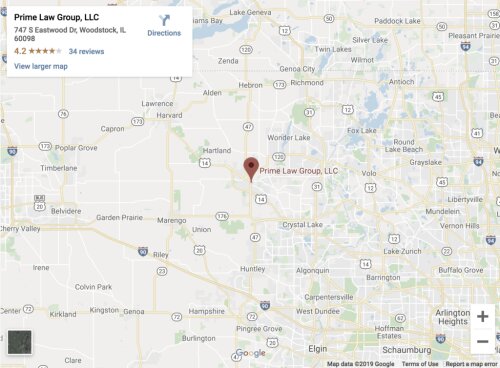Best Labor Law Lawyers in Alabama
Share your needs with us, get contacted by law firms.
Free. Takes 2 min.
Or refine your search by selecting a city:
List of the best lawyers in Alabama, United States
About Labor Law in Alabama, United States
Labor law in Alabama governs the rights and responsibilities of employers and employees in the workplace. It includes federal and state regulations covering topics such as minimum wage, overtime pay, workplace safety, discrimination, wrongful termination, and employee benefits. Alabama is considered an "at-will" employment state, which means employers may generally terminate employees for any reason, provided that the reason is not illegal. The state also has right-to-work laws, affecting union membership and related matters. Both federal labor laws, such as those enforced by the U.S. Department of Labor, and Alabama-specific statutes apply in the state.
Why You May Need a Lawyer
People seek legal help with labor law issues for various reasons. Common situations include disputes over unpaid wages or overtime, claims of workplace discrimination or harassment, wrongful termination, issues relating to employment contracts and non-compete clauses, and disputes arising from union activities. Employees may also need advice if they are facing retaliation after reporting a safety or legal violation. Similarly, employers may require legal counsel to ensure compliance with labor laws, defend against claims, or develop workplace policies. Because employment laws can be complex, a lawyer can help protect rights and clarify obligations.
Local Laws Overview
Alabama labor law is shaped by both federal and state-specific rules. The state follows the federal minimum wage, currently set at $7.25 per hour, as Alabama does not have its own minimum wage law. Overtime laws generally follow the federal Fair Labor Standards Act (FLSA), requiring overtime pay for eligible workers who work over 40 hours in a workweek. Alabama's right-to-work law means employees cannot be compelled to join or pay dues to a union as a condition of employment.
Additionally, Alabama law protects workers from discrimination based on race, color, religion, sex, national origin, disability, or age. However, many discrimination claims are also governed by federal laws such as Title VII of the Civil Rights Act and the Americans with Disabilities Act. The state does not have laws mandating paid sick leave or paid vacation, leaving these benefits at the discretion of employers. "At-will" employment gives employers flexibility in termination and hiring, though firing for reasons prohibited by law, such as discrimination or retaliation, is not allowed.
Frequently Asked Questions
What is "at-will" employment in Alabama?
"At-will" employment means either the employer or the employee can terminate the work relationship at any time, for any legal reason, or for no reason at all. However, termination based on discrimination, retaliation, or other legally protected reasons is prohibited.
What is Alabama's minimum wage?
Alabama does not have a state minimum wage law, so the federal minimum wage of $7.25 per hour applies.
Are employers required to pay overtime in Alabama?
Yes, most employees are covered by federal overtime laws, which require overtime pay of one and one-half times the normal rate for hours worked over 40 in a workweek. Some exemptions apply to certain job roles.
What types of discrimination are illegal in Alabama workplaces?
Discrimination based on race, color, religion, sex, national origin, age (40 and over), and disability is illegal under both federal law and applicable state law.
Can an employer require me to join a union to keep my job?
No, Alabama's right-to-work laws prohibit employers from requiring union membership or payment of union dues as a condition of employment.
Am I entitled to paid vacation or sick leave in Alabama?
No Alabama law requires employers to provide paid vacation or paid sick leave. Such benefits are at the discretion of the employer, governed by company policy or employment contracts.
What should I do if I believe I was wrongfully terminated?
If you believe your termination was due to discrimination, retaliation, or a violation of an employment contract, you may have a legal claim. Consult with an employment law attorney to assess your situation and next steps.
How do I file a workplace discrimination complaint in Alabama?
You can file a complaint with the Equal Employment Opportunity Commission (EEOC) or the Alabama Department of Labor. There are specific time limits for filing complaints, so act promptly.
Are non-compete agreements enforceable in Alabama?
Alabama law enforces non-compete agreements in limited circumstances, such as protecting trade secrets, but the agreements must be reasonable in scope, duration, and geography to be valid.
What labor protections exist for independent contractors in Alabama?
Independent contractors are not covered by many labor protections, such as minimum wage, overtime, or unemployment benefits. It is important to correctly determine your work classification, as misclassification can affect your rights.
Additional Resources
- Alabama Department of Labor: Provides information on wage and hour laws, unemployment benefits, and workplace safety.
- U.S. Department of Labor: Offers federal labor standards, guidance on wages and overtime, and instructions to file complaints.
- Equal Employment Opportunity Commission (EEOC): Handles federal workplace discrimination claims.
- Local legal aid organizations: Can assist workers with limited means to access legal advice on employment issues.
- Alabama State Bar Association: Provides resources to find qualified employment law attorneys.
Next Steps
If you believe your labor rights have been violated or you have questions regarding your employment situation, consider the following steps:
- Gather all relevant documents, such as pay stubs, employment contracts, personnel files, and written communications.
- Write down key dates, events, and the names of people involved in your workplace issue.
- Contact your employer's human resources department if you feel comfortable and the issue is not severe or urgent.
- Consult with a qualified Alabama labor law attorney to review your case and discuss your options.
- If your situation involves discrimination, harassment, or wage violations, be aware of filing deadlines for complaints with state or federal agencies.
- Utilize local resources and legal aid services if you need assistance finding or affording legal representation.
Taking prompt action is important as some claims have strict deadlines. Legal counsel can help you protect your rights and navigate the complexities of labor law in Alabama.
Lawzana helps you find the best lawyers and law firms in Alabama through a curated and pre-screened list of qualified legal professionals. Our platform offers rankings and detailed profiles of attorneys and law firms, allowing you to compare based on practice areas, including Labor Law, experience, and client feedback.
Each profile includes a description of the firm's areas of practice, client reviews, team members and partners, year of establishment, spoken languages, office locations, contact information, social media presence, and any published articles or resources. Most firms on our platform speak English and are experienced in both local and international legal matters.
Get a quote from top-rated law firms in Alabama, United States — quickly, securely, and without unnecessary hassle.
Disclaimer:
The information provided on this page is for general informational purposes only and does not constitute legal advice. While we strive to ensure the accuracy and relevance of the content, legal information may change over time, and interpretations of the law can vary. You should always consult with a qualified legal professional for advice specific to your situation.
We disclaim all liability for actions taken or not taken based on the content of this page. If you believe any information is incorrect or outdated, please contact us, and we will review and update it where appropriate.
Browse labor law law firms by city in Alabama
Refine your search by selecting a city.












